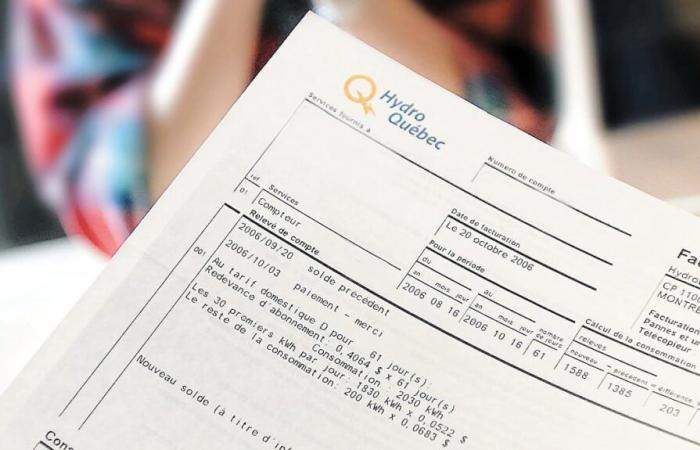Hydro-Québec’s message is not getting through: 39% of Quebecers think that Quebec is still in a situation of energy surplus, according to a survey.
• Also read: Flying Whales airships at Hydro-Québec: not for tomorrow
• Also read: Battery sector: a third wave of layoffs at the terminal manufacturer FLO: “It’s extremely sad for the people”
Energy insecurity is affecting Quebecers. More than two thirds of them (67%) say they are worried that demand for electricity exceeds production capacity. 84% also think that an energy deficit risks causing an increase in electricity costs, according to a survey commissioned by the Canadian Federation of Independent Business (CFIB).
Curiously, 39% of these same Quebecers think that Quebec is still in a surplus situation, while 17% believe that the province is in an energy deficit.
Even if the Prime Minister assures that the increase in prices to citizens will be limited to 3%, the survey shows that 75% of them think that Hydro-Québec’s major investments will increase the price of electricity.
Customers will pay
The survey was carried out among citizens, but entrepreneurs are also worried.
“What worries me is that I have a Hydro-Québec account of $18,000 per year, and if I calculate the planned increases if Hydro-Québec wants to finance their planned investments, in less 10 years that brings me to a Hydro account of $32,500,” says Anick Cormier, manager of Délires & Délices – Microbrasserie, in Chambly.
Anick Cormier is based on a study by the Union des consommateurs which predicts that electricity prices could undergo an annual increase of 5.6% to 9% from 2028, which far exceeds the 3% promised by the government.
“Who’s going to help me pay for this? He’s my client. Is a customer who pays $11 for a beer today willing to pay $25.00 for a beer in 10 years? I don’t think so. The more I raise my prices, the fewer people come into my establishment,” she adds.
Same story with Pierre Laplante, of the private seniors’ residence Château Pierrefonds. “Quebec is on the verge of running out of energy. This is a significant source of concern for SMEs throughout Quebec. Who says energy deficit says price increase. Quebec SMEs do not have to pay the costs,” he said.
And wake-up call
“This survey is a wake-up call for the government and for the new minister Christine Fréchette. They will have to make good use of Bill 69 to undertake the shift in the right way. Everyone is for the energy transition, but no one wants to pay,” says François Vincent, of the CFIB.
He adds that Quebec should ensure that it has a diversification of energy sources, including nuclear energy and natural gas. “Right now we are putting all our eggs in the Hydro-Québec basket.”
Currently, Quebec SMEs are being held back by cost pressure, reduced demand and labor shortages, according to the CFIB. Added to this are concerns about energy security and paying the price for Hydro-Québec’s massive investments.
survey
In your opinion, does Quebec CURRENTLY have an energy surplus (Quebec can produce more energy than it needs) or an energy deficit?
Total surplus : 39 %
Total deficit: 17 %
- Very large surplus 10 %
- Slight surplus 29 %
- Balance (produces as much as it uses) 21 %
- Slight deficit 12 %
- Very large deficit 5 %
- I don’t know 22 %
Over the next 10 to 15 years, do you believe that Quebec will have an energy surplus (Quebec can produce more energy than it needs) or an energy deficit?
Totally worrying: 67 %
Totally not worrying: 25 %
- Very worrying 18 %
- Quite worrying 49 %
- Not very worrying 20 %
- Not at all worrying 5 %
- I don’t know 8 %
We find ourselves in a situation of energy deficit; do you think the price of electricity will increase, decrease or stay the same?
Increase : 84 %
Stays the same: 14 %
Decrease : 1 %
Methodology As part of this project, we questioned 1,000 Quebec adults. √ Period: October 24 to 28, 2024 √ Respondents were recruited via online panels, and the study was conducted online. √ Interviews were conducted in French or English, depending on the respondent’s preference.
Do you have any information to share with us about this story?
Write to us at or call us directly at 1 800-63SCOOP.






